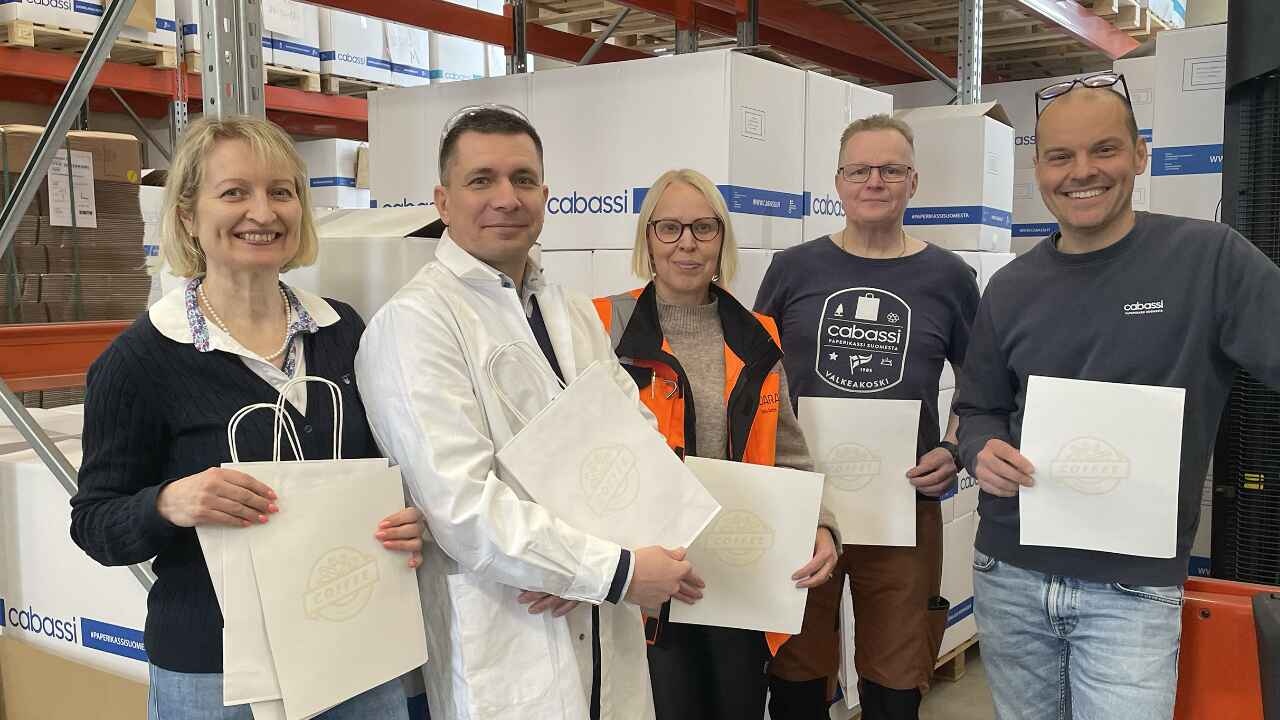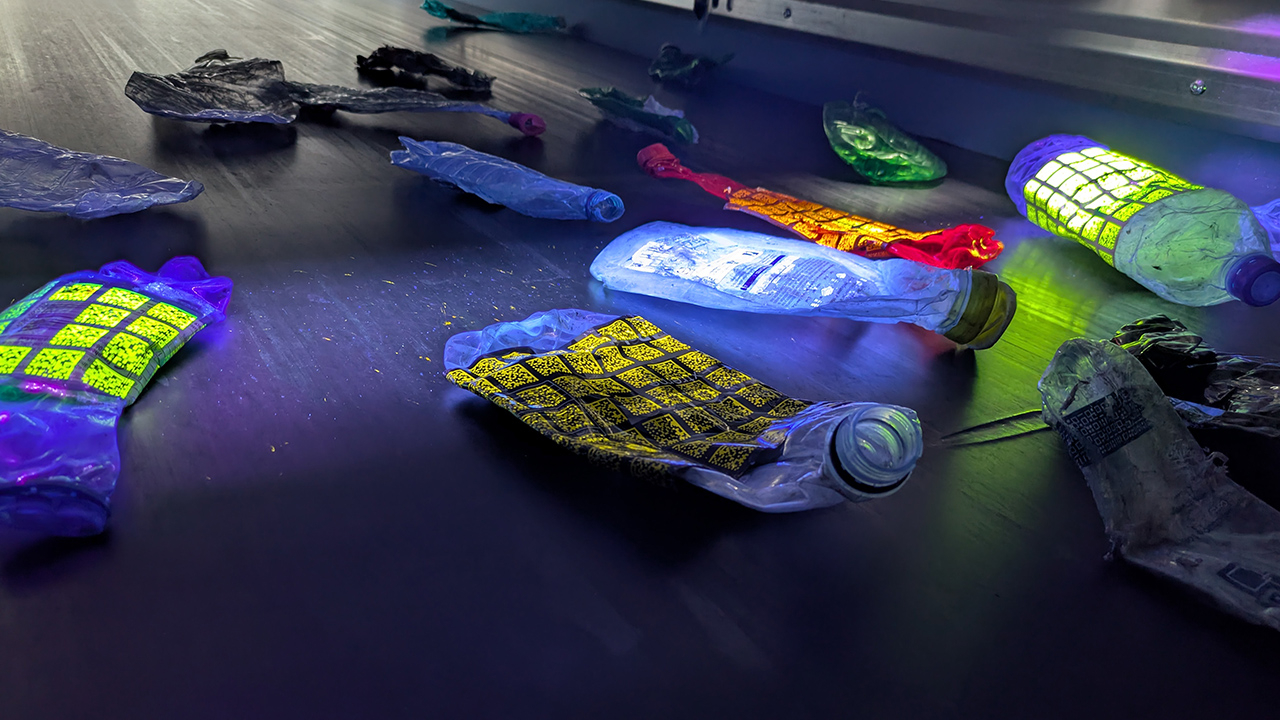Finnish collaboration pioneers ink using coffee waste
Natural Indigo Finland, in partnership with TAMK, has developed a water-based ink using coffee waste.

Natural Indigo Finland, in partnership with Tampere University of Applied Sciences (TAMK), has developed a water-based ink using bio-colorant extracted from coffee waste supplied by Finnish coffee roastery and spice producer Meira Oy. The resulting ink offers a renewable, natural alternative to synthetic pigments traditionally used in packaging printing.
The project has progressed from laboratory research to industrial proof-of-concept, with Cabassi Oy printing the ink on Paptic. This durable and soft fiber-based material is recyclable at scale and designed to replace plastic in packaging—the result is a high-quality, sustainably printed paper bag colored with pigment sourced from coffee waste.
'This is a true circular economy product. We’ve taken what was once waste and upcycled it into value, replacing synthetic colorants with a fully bio-based pigment made from coffee,' said Pasi Ainasoja, CEO of Natural Indigo Finland.
'As a coffee roastery committed to sustainability, we’re proud that there is a new, alternative way to use this valuable raw material. On top of producing biogas from the side streams, we can also utilize it for more sustainable packaging. This collaboration between a start-up, academia, and industry is an inspiring example of cross-sector innovation that creates new concrete sustainable options,' said Heidi Päiväniemi, sustainability, development and communication director at Meira Oy.
'This is a significant green innovation in the global packaging print sector, which is worth hundreds of billions of euros annually,' added Dr Kai Lankinen, who teaches and researches sustainable packaging at Tampere University of Applied Sciences. 'We are forming an international consortium of ten companies and higher education institutions to raise 9.5 million EUR in funding. We aim to scale this 100 percent bio-based colorant globally, replacing synthetic pigments with alternatives derived entirely from industrial waste and natural sources.'
This proof-of-concept results from 12 months of collaborative research and development, responding to the rising demand for eco-friendly alternatives in packaging and print. As regulations tighten and the shift away from fossil-based resources accelerates, this innovation provides a scalable, low-impact color option suitable for various applications.
The partners are now seeking to expand the collaboration and invite additional industry players to help scale the innovation globally and speed up the transition to bio-based coloring inks.
Key highlights of the project include cross-industry collaboration. Natural Indigo Finland extracted the pigment, and ink was developed in partnership with Dr Kai Lankinen at Tampere University of Applied Sciences, and Meira Oy supplied roasted coffee side streams.
The project also highlights the successful transition from laboratory research to industrial flexographic printing, in collaboration with Cabassi Oy, using Paptic as the fiber-based substrate. It also demonstrates environmental benefits and the circular economy in action. It transforms industry waste streams into high-value, functional materials with new applications.
This water-based bio-colorant ink made from coffee waste is more than a scientific breakthrough; it is a commercially viable alternative aligned with circular economy principles, evolving consumer expectations, and the growing demand for sustainable brand practices.
Stay up to date
Subscribe to the free Label News newsletter and receive the latest content every week. We'll never share your email address.

